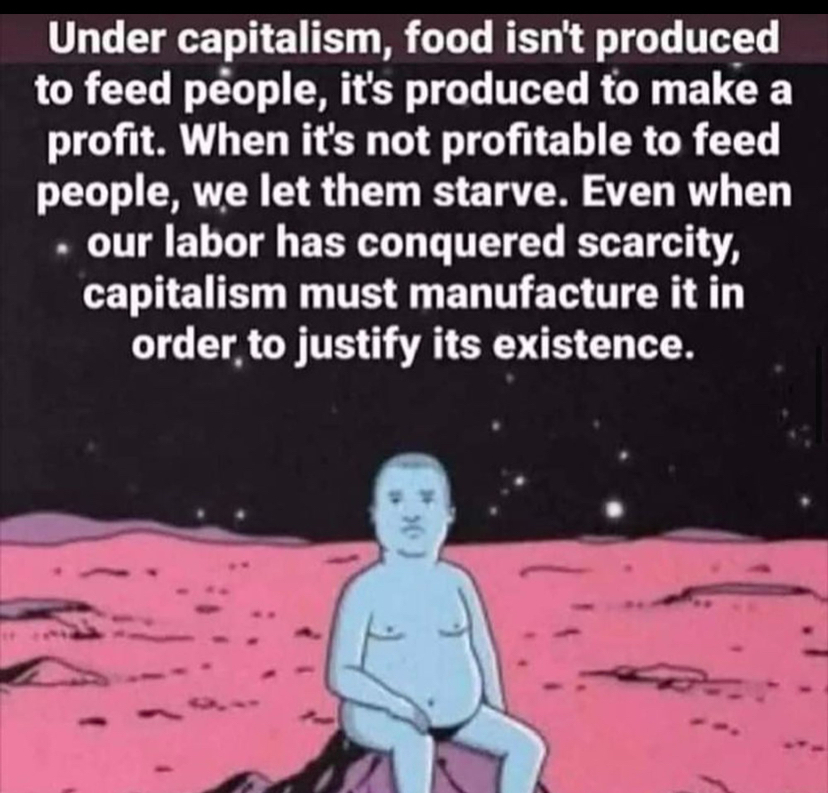this post was submitted on 01 Aug 2024
866 points (94.7% liked)
Political Memes
6350 readers
3111 users here now
Welcome to politcal memes!
These are our rules:
Be civil
Jokes are okay, but don’t intentionally harass or disturb any member of our community. Sexism, racism and bigotry are not allowed. Good faith argumentation only. No posts discouraging people to vote or shaming people for voting.
No misinformation
Don’t post any intentional misinformation. When asked by mods, provide sources for any claims you make.
Posts should be memes
Random pictures do not qualify as memes. Relevance to politics is required.
No bots, spam or self-promotion
Follow instance rules, ask for your bot to be allowed on this community.
founded 2 years ago
MODERATORS
you are viewing a single comment's thread
view the rest of the comments
view the rest of the comments

We might be, and I'm definitely not an expert or that immediately knowledgeable (hence, why I just listened to two long-ass books in two weeks), but even your banking example doesn't really satisfy me. I get what you're saying -- not that banking or capitalism were a spontaneous solution or decision or conscious at all, but moreso that they solved a certain problem many human societies had, and therefore it was further adopted, and further, and further, an almost natural propensity to spread. In some sense, there must be some underlying force that's pushing capitalism and banking along, because otherwise we wouldn't have their dominance, today.
But that is still the core idea the authors push back against in those two books. I'd probably argue that banking didn't spread because it solved the problem (hoarding money), but that it emerged out of early hierarchical societies whose states, themselves, hoarded primitive "money" (grain) and lent it out to farmers at interest, and that the underlying force we're looking for that caused it's eventual spread is the concept of debt or becoming whole, itself. But then I am also getting into the territory of banking as some natural sociological phenomenon that was destined to be furthered and furthered , which is, again, exactly what those two books seek to dispel, especially Debt.
I'd like to continue, but this would definitely work better as an in-person conversation where we could push back and forth against ideas, but I do have to work :/